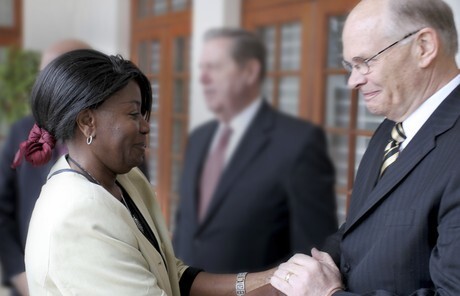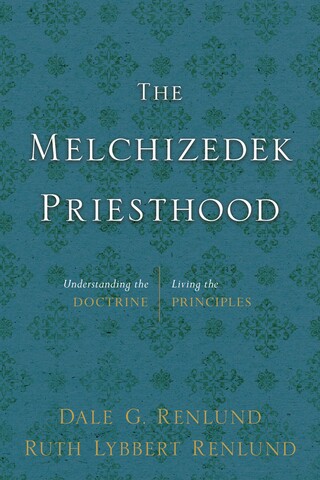When I was released as a stake president, I was expecting a big thank you from the presiding authorities. I had worked diligently for years and felt I deserved such thanks. The weekend came, and the presiding authorities were focused on the call of the new stake presidency. They were not focused on thanking the outgoing stake presidency. After the stake conference, I felt disappointed.
That Sunday afternoon, I visited my father. He was a man of few words. He listened as I grumbled about not being thanked. He said nothing. The next morning, however, the phone rang at 6:00 a.m. It was my dad. Without preamble, he said, “I’ve been thinking about what you were saying. I have one question for you: Who were you serving?” Then he hung up. In that moment, my dad taught me a valuable and enduring principle about priesthood service. We serve when called. We graciously accept releases. Our thanks comes from the Lord. . . .
A calling is not “earned.” The Lord calls individuals for His purposes. When I was called to serve as a bishop, my older brother, Gary, called to congratulate me on my call. Gary said: “You shouldn’t suppose that God has called you because of anything you have done. In fact, in your case, it is despite what you have done. God has called you for what He will accomplish through you.” . . .
All Are Needed in the Lord's Church
All are needed and all are equal before God. . . . All receive the gift of God’s grace. All receive a gift of agency, to act and “not to be acted upon” (2 Nephi 2:26). . . .
Some years ago, a young man named Curtis was called to serve a mission. He was the kind of missionary every mission president prays for. He was focused and worked hard. At one point, he was assigned a missionary companion who was immature, socially awkward, and not particularly enthusiastic about getting the work done.
One day, while the elders were riding their bicycles, Curtis looked back and saw that his companion had inexplicably gotten off his bike and was walking. Silently, Curtis expressed his frustration to God; what a chore it was to be saddled with a companion he had to drag around to accomplish anything. Moments later, Curtis had a profound impression, as if God were saying to him, “You know, Curtis, compared to me, the two of you aren’t all that different.”
In a moment of inspiration, Curtis realized eternal truths: We are all equal before God, we are all important in His work, and we all make the contribution we can with the talents and abilities we have. . . .
Always Seek to Do Better
“How could I have done better?” I learned to ask this question from an experienced priesthood holder. On one occasion when I was an Area Seventy, I was assigned to accompany Elder Neal A. Maxwell of the Quorum of the Twelve to a stake conference. It was marvelous to be with one of the most remarkable gospel teachers of this dispensation. At the conference, I gained an insight into how he had developed and magnified what was undoubtedly a God-given gift. As we were driving away from the stake center on Saturday evening, he turned in his seat and asked me, “What could I have done better to teach the principles we taught?” I thought he had to be joking. But he kept on grilling me until I mentioned some minor thing that might have been slightly unclear. The next day, in the Sunday general session of the stake conference, he clarified that minor thing I had mentioned. I realized that I was with a humble Apostle of Jesus Christ who welcomed counsel and always desired to be a more effective priesthood holder.
Lead image from lds.org
Get more powerful insights in The Melchizedek Priesthood: Understanding the Doctrine, Living the Principles.
This insightful book by Elder Dale G. and Sister Ruth Lybbert Renlund helps men better understand the principles and doctrine of the Melchizedek Priesthood and learn how to properly exercise it in their daily lives. Section One presents the foundations of the priesthood, explaining basics about what it is, what it is for, and the commandments that govern its use. Section two gives fifteen principles that act as a "primer" for using the priesthood more effectively. A few of these principles include "A Priesthood Holder Must Be Willing to Be Presided Over," "A Priesthood Holders Uses Councils Effectively," and "A Priesthood Holder Judges Righteously." Elder and Sister Renlund's joint quest in studying the priesthood and its application offers a model for how men and women can work together in their understanding and teaching about the priesthood.


